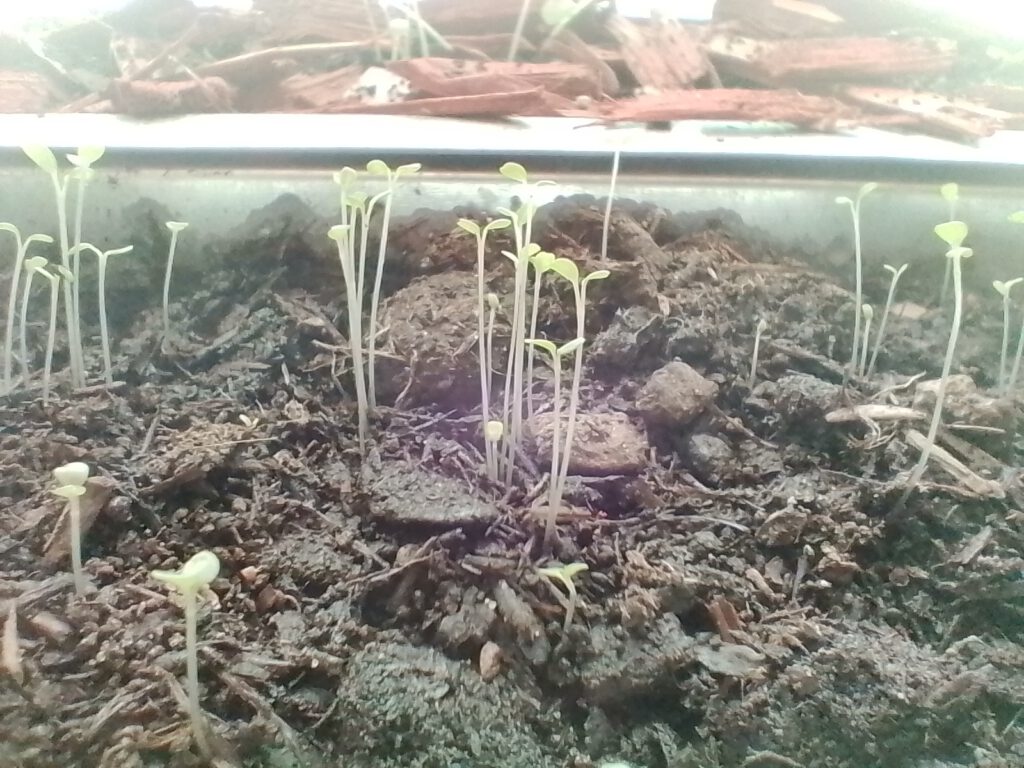
From dark, moist soil, the first delicate stems of wild rocket stretch toward the light. Still small and fragile, yet full of energy, the seedlings begin to unfold their first leaves – a quiet expression of vitality and new beginnings.
What grows here is more than just a salad green: wild rocket (Diplotaxis tenuifolia) symbolizes resilience, wildness, and a return to natural, unprocessed food. Its finely cut, slightly spicy leaves not only add flavor to meals, but also reconnect us with the earth and the natural cycle of life.
Wild Rocket at a Glance
- Botanical name: Diplotaxis tenuifolia
- Family Brassicaceae: (mustard family)
- Growth habit: Perennial, deeply cut leaves, about 15–30 cm tall
- Preferred location: Sunny to semi-shaded; well-drained soil
- Flavor: Peppery, slightly sharp, nutty
- Nutrients: Vitamin C, Vitamin K, folate, mustard oils (glucosinolates)
- Effects: Antioxidative, antibacterial, supports digestion
- Uses: Fresh in salads, on pizza, with pasta, or as a flavor accent on bread
- Growing: Easy – suitable for gardens, raised beds, or balcony pots
Wild Rocket – Spicy, Healthy, and Hardy
Wild rocket, also known as arugula, is a leafy plant with narrow, jagged leaves and a strong, peppery taste. It belongs to the Brassicaceae family – the same plant family as mustard, radishes, and cabbage.
Unlike the common salad arugula (Eruca sativa), wild rocket is more robust. It often grows as a perennial – meaning: once sown, it can return and regrow over several years. It also tolerates dry conditions well.
Wild rocket is rich in nutrients
Vitamin C – supports the immune system and helps protect cells.
Vitamin K – important for healthy blood clotting and bones.
Folate (Folic acid) – supports cell growth, especially during periods of development.
Mustard oils (Glucosinolates) – plant compounds that give rocket its sharp flavor. They have antibacterial effects (can inhibit the growth of certain bacteria) and are antioxidative*.
*Antioxidative means: they help the body neutralize “free radicals” – unstable molecules that can put stress on cells. This supports the natural balance in the body.
Wild rocket goes well with many dishes
In salads, on pizza, with pasta, or simply fresh on bread. And best of all: it’s easy to grow – in the garden, in pots, or on a balcony.
